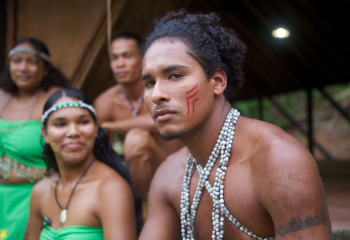CDB and partners assess impacts of disasters and climate change on livelihoods in Jamaican Communities
With the 2019 hurricane season underway, researchers are assessing how over 30 communities in Jamaica are affected by disasters and climate change.
The research, which is being done by representatives from the Community Disaster Risk Reduction Fund (CDRRF) managed by the Caribbean Development Bank (CDB), the Food and Agriculture Organization of the United Nations and the Social Development Commission (SDC) will focus specifically on the impact on the lives and earnings of residents in the communities.
“This research is critical as it will provide local-level information considered essential to the process of turning awareness of natural hazards and risks faced by communities into actions that will help persons to effectively prepare for and improve their capacity to respond to and recover from disasters. The livelihood baseline will help us to see what needs to be put in place to address this,” said Claudia James, Project Manager for the CDRRF, which is based at the Bank’s headquarters in Barbados.

Throughout June, the CDRRF and SDC team, with technical support from Dr. Maria Protz, FAO Consultant, completed surveys in Llandewey, Ramble and Trinityville, St. Thomas, Jeffrey Town in St. Mary, Peckham and four surrounding districts in Clarendon and Savanna-la-Mar, Westmoreland, using methods from FAO’s Livelihood Baseline toolkit. Volume two of the toolkit emphasizes the importance of determining the many ways in which community members earn an income before a disaster, the hazards that are likely to affect them and some of the coping strategies they use in the face of disasters. It also provides a solid basis for making estimates of the impact of disasters on livelihoods at the community level.
The research comes on the heels of a recent workshop held in Belize which introduced the Livelihood Baseline Assessment Toolkit developed by the Food and Agriculture Organization (FAO) of the United Nations and the International Labour Organization (ILO). The workshop, which focused on Volume 2 of the Toolkit – Livelihood Baseline and Contingency Plans – was organised by the CDRRF and FAO. SDC staff members involved in the data collection exercise were previously among a group of 34 regional representatives trained at this workshop.
“In the Caribbean, we are quite good at disaster and emergency preparedness to minimise loss of life and damage to homes, schools, hospitals and infrastructure. But we have not invested the same level of concentration on preparedness for the loss of livelihoods. So our people have much better chances of surviving the immediate impacts of disastrous events, but have challenges getting back to work afterwards. Livelihood contingency plans really don’t exist. And as a result, we are often left with “guestimates” as to what livelihood resources have been lost,” explained Dr. Maria Protz, FAO Consultant on the research. “Responses can be quicker and more targeted if we know in advance, which households and which persons are more likely to be vulnerable and which livelihoods are most at risk.”
She said that the LBA offers a methodology for developing solid “before pictures” of the livelihoods that exist in particular communities, and the resources (human, financial, physical, natural) that are needed to sustain them and what the costs will be if they are lost.
Importantly, the data collected will be used for inter-agency planning and development of initiatives ahead of disasters. It will also provide a reliable basis for immediate post-disaster assessments.
Following the surveys, the SDC team will compile the Draft Livelihood Baseline and Contingency Plan reports for the communities surveyed. This information will be shared with other national agencies such as Rural Agriculture Development Authority (RADA), the Planning Institute of Jamaica (PIOJ) and the Office of Disaster Preparedness and Emergency Management (ODPEM). The inter-agency network can then use the information as evidence to determine what programmes persons would need to help them during these times.
For SDC, the experience with the Livelihood Assessment Toolkit was a timely and important one. According to Juanita Reid, Deputy Executive Director with responsibility for Community Research and National Development Priorities at the SDC, while her team would have previously completed participatory community research, the current tools that were introduced under the CDRRF project have expanded their scope to now include an assessment of livelihoods and the preparation of community contingency plans.
“It is good for us that we are doing this research using the Livelihood Assessment toolkit as many persons do not typically highlight the impact of natural hazards on their livelihoods. It is also timely as we are in the 2019 hurricane season and several of these communities have experienced some climatic change impacts. The data collected will therefore be useful for further planning in the event that they have a disaster in their space,” Reid added.
The survey findings will be used by the SDC in various ways, including the preparation of its 5-year Strategic Plan. The methodology will be incorporated into their community profile development process which is intended to help improve socioeconomic aspects of life in
communities across Jamaica.
CDRRF is a multi-donor trust fund, managed by CDB, which finances community-based disaster risk reduction (DRR) and climate change adaptation (CCA) initiatives at the local level across eligible borrowing member countries of the CDB.





